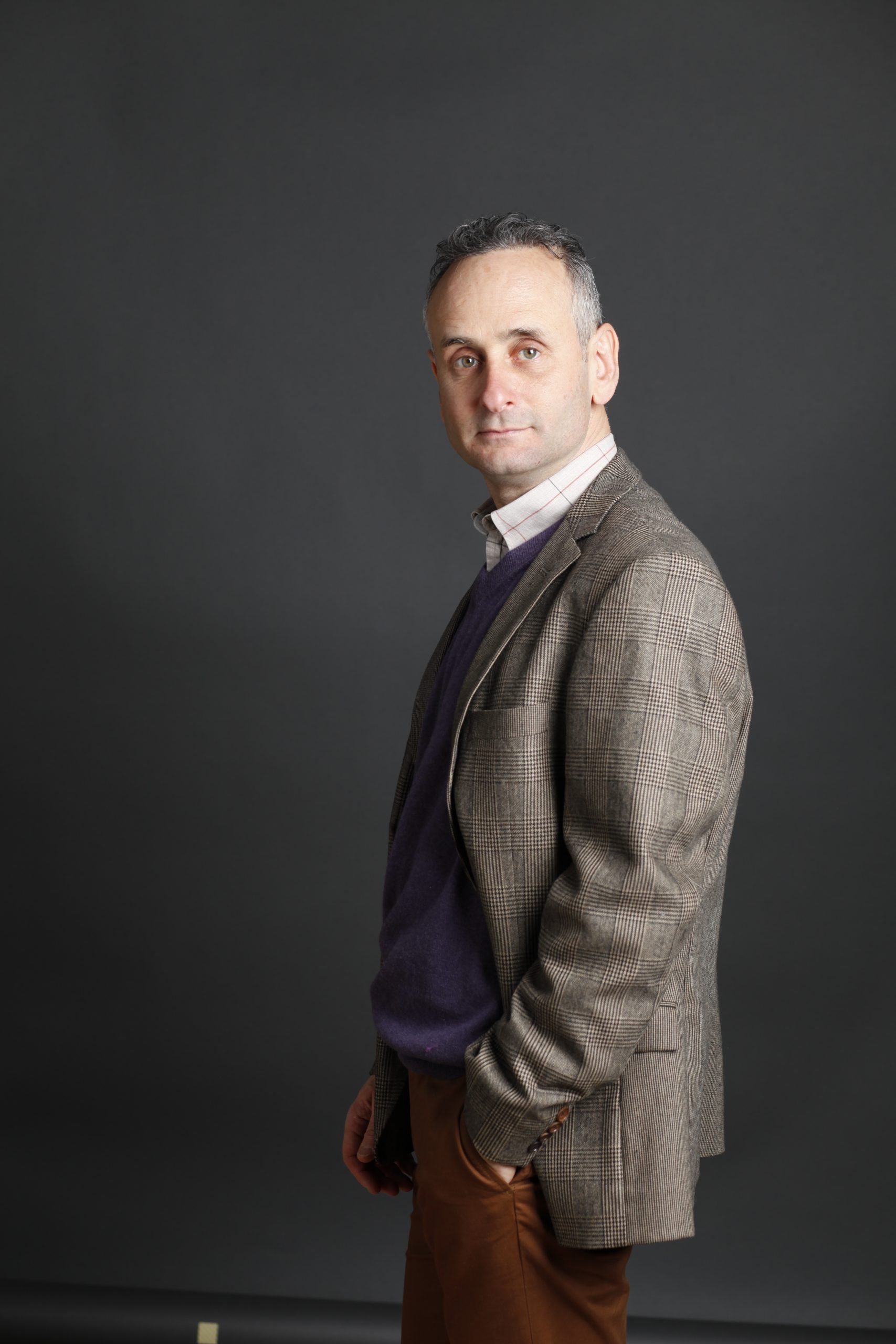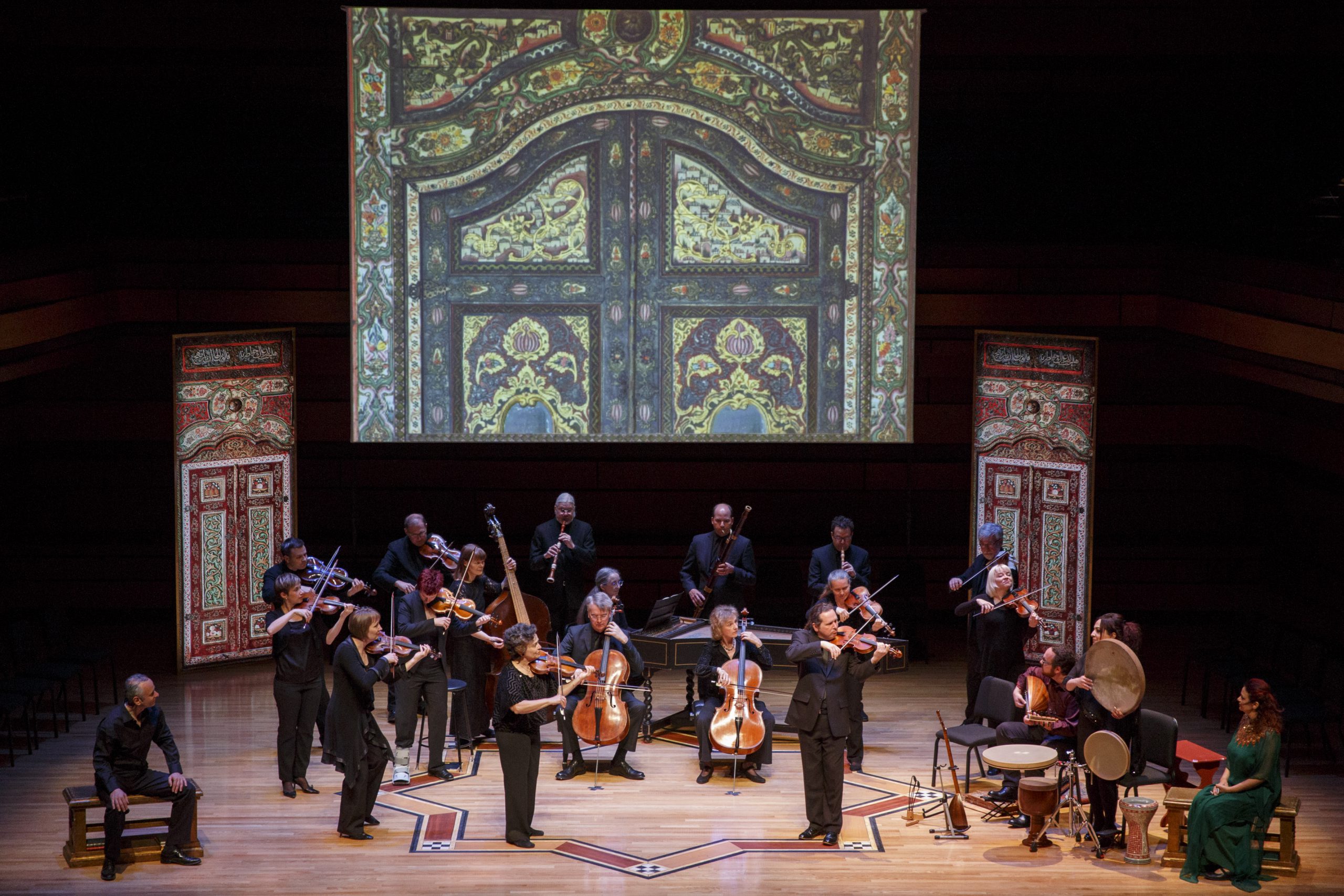Guest Blog Post – Ieva Lucs
To connect the inconceivable struggle and heartbreak of the Syrian refugee crisis with something as mundane as a cup of coffee may seem like an impossible task. Tafelmusik, Canada’s award-winning baroque orchestra, however, find themselves drawing that bizarre parallel in their new show opening in Toronto on Thursday. Tales of Two Cities: The Leipzig-Damascus Coffee House, written by Alison Mackay (House of Dreams, The Galileo Project), tells the parallel stories of two seemingly disparate cities. In the 18th century, Leipzig (in Germany) and Damascus (in what is now Syria) both sat at the intersections of bustling trade routes. In her creation, Mackay shows how the coffee houses in these cities acted as incubators for the growth of music and storytelling traditions. The timing of this show is undeniably relevant, as thousands of Syrians flee their homes and Germany opens its borders to them. As part of her research Mackay traveled to Leipzig, in lieu of taking the impossible journey to Damascus, and met with Syrian refugees who had recently settled in the city. The show that emerged is a multi-disciplinary performance incorporating two live orchestras (Tafelmusik’s own baroque orchestra, as well as Trio Arabica), a singer and a narrator. Our narrator, or “tour guide” as he calls himself, is the multi-talented actor Alon Nashman (Hirsch, Kafka and Son).

Actor Alon Nashman
“To me, this whole project is part of a healing that Toronto can lead the way in,” said Nashman, on the phone from Kingston where the show is having its world premiere. “Many Canadians are opening their hearts and homes to Syrians, but on an emotional level we don’t really know what to do or how to feel this loss. This piece really allows the audience to make that connection without hitting them with a cudgel of those ideas. It’s subtle.” Playing with Tafelmusik’s baroque orchestra is the Trio Arabica, which is made up of percussionist Naghmeh Farahmand, singer Maryem Tollar, who also plays the zither, and Demetri Petsalakis on a stringed instrument called an oud. The trio evokes the coffee houses of Damascus by playing classical Arabic music with influences from Syria, Iraq and Turkey. When the storyline takes the audience to Germany it will include musical compositions from such classical greats as Telemann, Händel and Bach, all of who worked as musicians in coffee houses in Leipzig. During rehearsals Nashman watched the two orchestras work together and, he said, they are “loving encountering each other.” “They are finding ways in which their instruments complement each other as the musical baton is passed back and forth. That’s important cultural work. We can read about what’s going on but to really feel it and to immerse ourselves in it is another matter, and that’s what this piece provides.” According to Nashman, having a live orchestra as an acting partner isn’t the challenge a person might suppose. Instead, the orchestra does a lot of his “internal emotional preparation” for him. “The music takes me right there and suddenly I’m practically bawling. I’m going to have to reign it in in order to utter the words because the music is so moving.” Being that close to the orchestra allows the actor to become a voyeur and peer into the inner workings of the orchestral machine. “I have the best seat in the house,” said Nashman. “Because I’m in that proximity to the players I hear the breath behind each transition and I see the little looks and indications with the body that allow this entity, which is made up of 20 or so people, to move like one.”

Tales of Two Cities: The Leipzig-Damascus Coffee House. Photo by Bruce Zinger
Nashman plays many characters in the piece, including a “know-it-all” narrator, Don Quixote, composer Georg Phillip Telemann and various travelers whose diary entries make for expressive and educational monologues. Stage director Marshall Pynkoski, co-founder of Opera Atelier and former dancer at the Moulin Rouge in Paris, encouraged Nashman to go with his inclination “to enter the psyche and body of these beings.” “He (Pynkoski) is an extremely physical, ballet trained opera director who is into the significant gesture. He’s helping me clarify each of these characters,” said Nashman. “I try to live the life of Telemann or the knight errant, Don Quixote, ever so briefly. I’m probably more active and more embodied than other narrators they’ve had because I just can’t help myself.” Nashman promises that, during performances, traditional concert behaviour will be subverted. He insists that the experience of this show is about engaging the audience on another level. “The way that Alison (Mackay) conceives of the text is almost like another way of expressing or expanding the music. Because I’m responsible for creating a large experience for the audience sometimes I’m stomping on applause. There could be some beautiful music playing but I’m just going to come right in. We’re demanding not a polite response but a visceral response.” So why should Torontonians care about a show to do with strangers in far away lands? Nashman explains why he believes this city will truly understand the piece. “I feel like this kind of cross referencing, cross pollinating, is one of the most exciting things about living in Toronto.”
